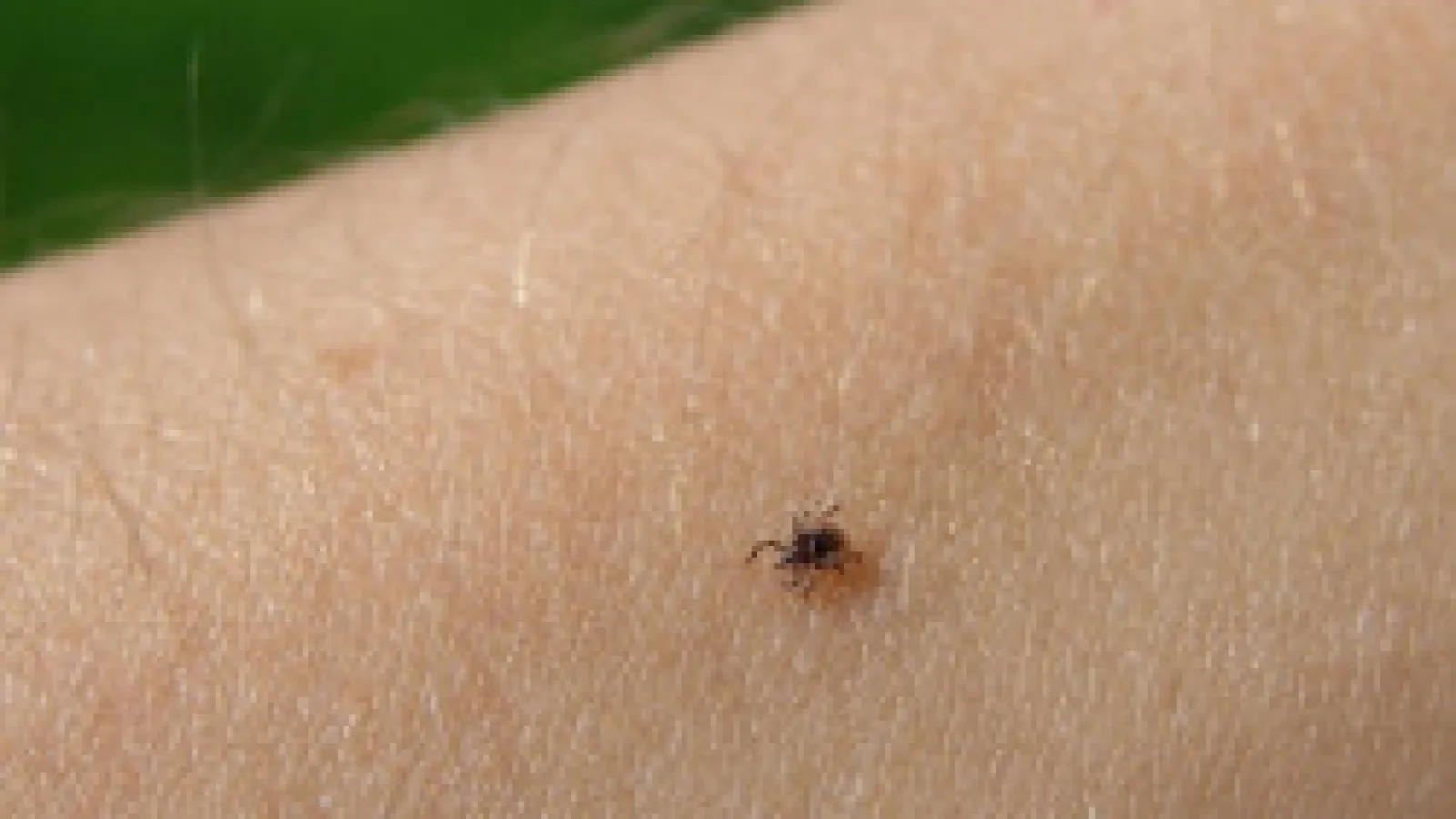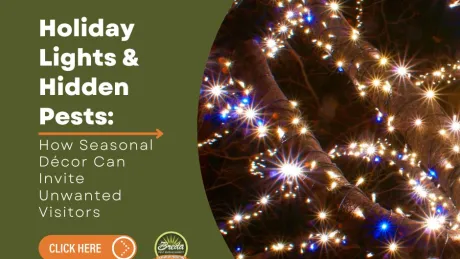It's only a matter of time before summer arrives! Unfortunately, with the warm summer weather comes some not so pleasant bugs. This summer in particular will be flooded with ticks due to our mild winter. This mild weather allowed animal populations to stay active longer, and this enabled the tick populations to thrive year round. You can expect a serious outbreak of ticks this summer.
What Are Ticks?
Similar to mites, spiders, and scorpions, ticks are arachnids, not insects. They are eight-legged and have an oval, or pear-shaped, body that engorges when full of blood. Ticks are known for their distinct mouths used for feeding off their hosts. There are two major families of ticks: hard and soft ticks. Hard ticks have a beak-like mouth clearly visible on the front of their head, whereas soft ticks mouths are located on the underside of their bodies.
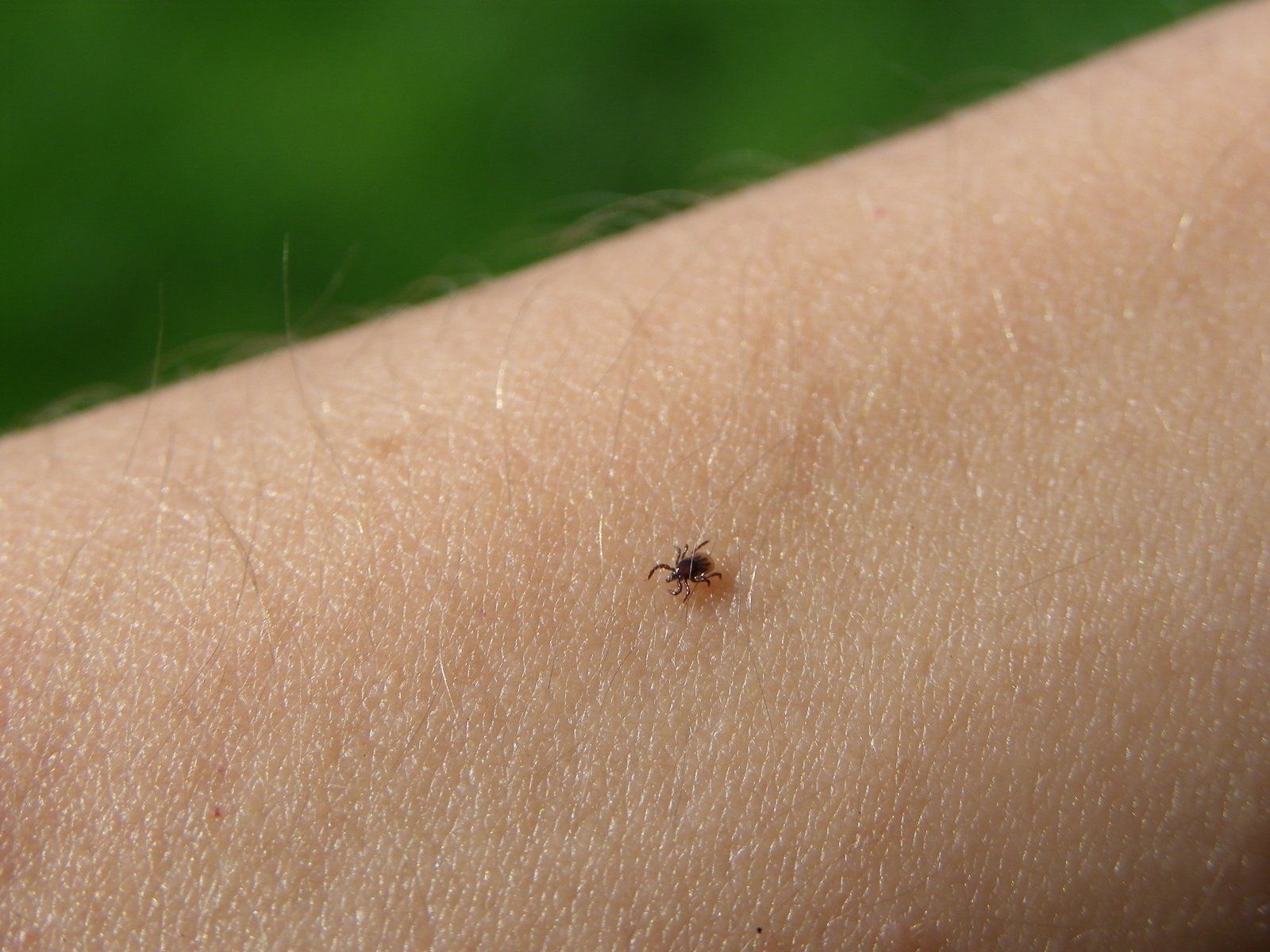
What Kind of Ticks are Found in Georgia?
The three tick species that are most commonly found in Georgia are the Lone Star Tick, American Dog Tick, and Black-Legged Tick.
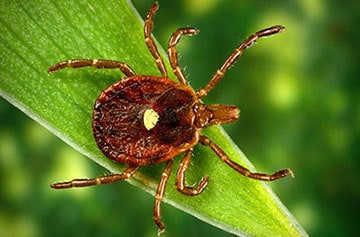
Lone Star Tick (Amblyomma americanum)
Adult Size:
1/10 - 1/4 inch
Distinctive Markings:
Female: A single white spot in the middle of her back
Male: Diffuse white markings on his back
Common Hosts:
Deer, livestock, dogs, humans, birds, and rodents
Commonly Found:
Brushy, bottomland areas

American Dog Tick (Dermacentor variabilis)
Adult Size:
1/4 inch
Distinctive Markings:
Male and Female: Diffuse white markings on their back
Common Hosts:
Dogs preferred, but will feed on other animals and humans
Commonly Found:
Grassy fields, scrubland, walkways, and trails
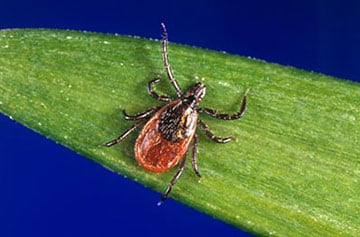
Black-Legged Tick (Ixodes scapularis)
Adult Size:
1/8 inch
Distinctive Markings:
Male and Female: No white markings
Common Hosts:
White-tailed deer, dogs, birds, humans, large mammals, small rodents
Commonly Found:
Knee-high tips of branches of low growing shrubs
Are They Dangerous?
If not dealt with properly ticks can be very dangerous to humans and other animals. In order to eat, ticks form a parasitic relationship with their host; they burrow their mouth into their host and gorge themselves on the host's blood. This access to you or your pets bloodstream means that they can transmit disease to their host.
In Georgia, ticks have been known to transmit several diseases.
⢠Mountain Spotted Fever
⢠Lyme Disease
⢠Tularemia
⢠Anaplasmosis
⢠Human Ehrlichiosis
⢠Southern Tick-Associated Rash Illness
⢠And more!
If you notice a tick is on you, or attached to you, remove it immediately and properly. The faster you remove a tick, the less likely it will spread any disease.
How Do I Properly Remove a Tick?
There are many different opinions on how to remove a tick. Some people think you can just pull it out with your fingers, but that can more dangerous than you think. If you are too rough or careless with your tick removal process you can leave behind the tick's mouth in your skin, which can cause infection or welts resulting from reactions to their saliva.
What Not To Do:
Do not try to use heat to detach the tick from your skin.
Do not try to paint the tick with nail polish or petroleum jelly.
What You Should Do:
The safest way to remove a tick is to use needle nose tweezers to grab the tick as close to the skin as possible and gently pull upward with steady, even pressure until it comes loose. If you fail to remove the whole tick, you should try to get the mouth out with tweezers. After removing the tick, thoroughly clean the bite area with rubbing alcohol or soap and water.
Never crush a tick with your fingers! Dispose of a live tick by submerging it in rubbing alcohol or flushing it down the toilet.
How Can I Prevent Ticks?
Here are a few tips on how to avoid becoming a likely host for a tick:
⢠Wear long sleeve shirts and pants
⢠Use bug spray
⢠Get tick repellent clothing (yes, that's a thing)
⢠Check yourself for ticks after being outdoors, especially tick prone areas
⢠Stay away from bushy areas with high grass and leaf litter
⢠Walk in the center of trails
⢠Keep grass cut low
⢠Monitor shaded areas; ticks don't like the sun
Still Having A Tick Problem?
Your best bet is investing in our professional pest service. At Breda Pest Management we know exactly how to treat your tick problem. Better yet, kill two birds with one stone and treat your yard for mosquitoes and ticks since our treatment plan can cover both at your request. Combining our tick and mosquito services will treat both the ground and low lying branches. Let Breda help you take back control of your yard this summer.
